Search This Blog
Saturday, June 30, 2012
Carthage In Flames (aka Cartagine In Flamme) (1960)
Friday, June 29, 2012
They Drive By Night (1940)
Two brothers (George Raft, Humphrey Bogart) are independent truckers well on their way to paying off their truck and starting their own business. But when Bogart falls asleep at the wheel, their truck is destroyed and Raft is forced to take a job from an old friend (Alan Hale) whose manipulative wife (Ida Lupino in the film's best performance) has her own plans for him. The film is evenly split into two parts. The first involves the two brothers and the problems they encounter with their struggling business. The second part becomes a film noir with the devious femme fatale played by Lupino going to all lengths, including homicide, in her attempt to get Raft. Both portions are enjoyable though the shift in the film's temperament is far from seamless and several seemingly important characters are given reduced screen time. It doesn't help that the film's leading man is outclassed his co-stars including the fourth billed Bogart who would be a huge star within two years. Directed by the prolific Raoul Walsh. With Ann Sheridan as Raft's love interest, Gale Page, Roscoe Karns, George Tobias, Frank Faylen and Joyce Compton (THE AWFUL TRUTH).
The Wild Duck (1984)
An impoverished photographer (Jeremy Irons) lives in seeming contentment with his wife (Liv Ullmann) and daughter (Lucinda Jones). But with the arrival of a school chum (Arthur Dignam) whose philosophy is that the truth will set you free and who is determined the family peel away the lies and build a new happiness based on truth, quite the opposite happens. Anyone who's read or seen a production of Henrik Ibsen's THE WILD DUCK knows how impossibly cruel the play is and that a successful production needs actors who invest the characters with a humanity which pulls us into the unsettling surroundings and will make the play's tragic end sting. This film of Ibsen's play transfers the play's setting from Norway to Australia (where it was filmed) which doesn't add anything to the narrative but worse, it softens Ibsen's final arrow with a clumsy ambiguous ending. The character of Gregers (called Gregory in the film) is an infuriating, meddling idealist and rather than giving him any redeemable or attractive qualities to play against, he's played by a physically unattractive actor (Dignam) with an annoying presence which undermines the character. Directed by Henri Safran. With Michael Pate and John Meillon.
Thursday, June 28, 2012
The Price Of Fear (1956)
Edipo Re (aka Oedipus Rex) (1967)
Wednesday, June 27, 2012
Run For Cover (1955)
Sadie Thompson (1928)
When a brassy good time gal (Gloria Swanson in an Oscar nominated performance) of easy virtue arrives on the island of Pago Pago, a religious fanatic (Lionel Barrymore) makes it his personal mission to see she's deported from the island. In the meantime, a soldier (Raoul Walsh, the film's director) falls for her and wants to marry her. The first of the three film versions of W. Somerset Maugham's short story MISS THOMPSON (it was remade in 1932 and 1953) remains the best. In no small part to director Walsh's atmospheric direction which perfectly captures the humid and steamy, rain soaked claustrophobic mien. Truth to tell though, Maugham's story is a pretty hoary piece which is why I doubt we'll see any more remakes. Barrymore slightly overdoes the religious zealousness but Swanson is excellent here, neatly balancing the brazen hoyden with the conflicted redemptive Sadie. It's a pity that most filmgoers think of her only in conjunction with SUNSET BOULEVARD. Unfortunately, the film's final reel no longer exists so the print I saw had to "recreate" the film's final moments with stills and intertitles based on the original screenplay.
Tuesday, June 26, 2012
Priest Of Love (1981)
The last years in the life of the author D.H. Lawrence (Ian McKellen). After being hounded by the British censors for his "obscene" books, Lawrence and his German wife (Janet Suzman, NICHOLAS AND ALEXANDRA) move to America then Mexico and Italy. While slowly dying of tuberculosis, Lawrence writes his most notorious novel, LADY CHATTERLY'S LOVER. Films about artists whether they be writers, painters, composers etc. are problematic in that it's near impossible to recreate the artistic mindset, the need to create without falling into cliche. Christopher Miles (who earlier directed a film version of Lawrence's THE VIRGIN AND THE GYPSY) does better than most but it's still not enough to make PRIEST OF LOVE markedly different than similar biopics. That being said, the film focuses on Lawrence's often tempestuous relationship with Frieda Lawrence as much as it does on writing and with more success. The film benefits from the location shooting, in particularly the Italian sequences, by Ted Moore (DR. NO). The director cast his sister, the actress Sarah Miles as a film star, but edited her out of the final product. Remaining in the cast are Ava Gardner, John Gielgud, Penelope Keith, Jorge Rivero and James Faulkner as Aldous Huxley.
Monday, June 25, 2012
River Of No Return (1954)
Recently released from prison, a widower (Robert Mitchum) is raising his son (Tommy Rettig) in an isolated cabin along a wild river when a raft containing a gambler (Rory Calhoun) and a saloon singer (Marilyn Monroe) is forced to the shore. The gambler attacks the farmer leaving him unconscious and steals his horse, leaving the three to flee hostile Indians on the raft traveling down the dangerous river rapids. I love this movie! As many times as I've seen it, I find myself revisiting it constantly. As a western, there's nothing exceptional about it yet it's simple, heartfelt and greatly entertaining with a marvelous chemistry between Mitchum and Monroe, two actors who personify Movie Star. The handsome Canadian landscape doubles for the American Pacific Northwest, lovingly shot in CinemaScope by Joseph LaShelle though the obvious rear projection shots are awkwardly inserted. Monroe gets to sing two lovely ballads that are among her best musical moments on screen. Directed by Otto Preminger, who clashed with Monroe and vowed to always make his own films thereafter rather than as a studio's hired hand. With Murvyn Vye, Douglas Spencer and John Doucette.
Sunday, June 24, 2012
Female On The Beach (1955)
Quatermass And The Pit (1967)
While digging in an underground tube in London, workmen discover several skeletons as well as a massive metal object that turns out to be an intergalactic vehicle that might have brought life to Earth five million years ago. The third in the Quatermass trilogy from Hammer films (the other two were THE QUATERMASS XPERIMENT and QUATERMASS 2), this may well be the best of the three. An intelligent and imaginative screenplay by Nigel Kneale (based on his television play) and the director Roy Ward Baker relies mostly on suggestion (until the very end with a disappointing shadowy creature) rather than graphic visual monsters. The characters are pretty stereotypical of sci-fi films which doesn't allow the talented actors much opportunity for character development. But some 45 years later, it holds up extremely well, a model of thoughtful, creative science fiction cinema without an emphasis on special effects. With Andrew Keir as Quatermass, James Donald (LUST FOR LIFE), Julian Glover and Barbara Shelley. Retitled FIVE MILLION YEARS TO EARTH for U.S. audiences.
Saturday, June 23, 2012
To Rome With Love (2012)
Poor Little Rich Girl (1987)
Friday, June 22, 2012
The Unguarded Moment (1956)
A high school teacher (Esther Williams) has been receiving anonymous sexually suggestive notes from a student. After a bungled rape attempt by the student (John Saxon), she reports it to the school authorities but she finds that no one believes her and she becomes the victim when it is suggested that she was the one who came onto him. Rape as a subject was seldom used in movies prior and during the 1950s. This somewhat awkward attempt (based on a story co-written by actress Rosalind Russell) is an intriguing effort that avoids sensationalism for the most part and treats its subject seriously yet it plays out more like a "damsel in distress" thriller than a genuine examination on the subject. Its psychology is rather simplistic by contemporary standards. Williams in a rare dramatic role is quietly effective, giving lie to the perceived notion that she couldn't act out of water. Directed by Harry Keller. With George Nader, Edward Andrews, Jack Albertson, Les Tremayne, Eleanor Audley, Edward Platt, Dani Crayne and Diane Jergens.
The Parallax View (1974)
After the assassination of a presidential candidate (Bill Joyce) on top of the Seattle Space Needle, several witnesses to the event die under mysterious circumstances in the ensuing years. A reporter (Paula Prentiss) fears she may be next and when she confides to a colleague (Warren Beatty), he dismisses her claims as paranoia. But when she is found dead, he begins to investigate and begins to uncover something beyond mere political assassination. One of the most admired of the 70s paranoid conspiracy thrillers, the film is absurdly far fetched which makes swallowing it a bit much but as cinema, the director Alan J. Pakula keeps a tight economical rein so that you don't dwell too much on the absurdities until the film is over. Two years later, Pakula would do better in the paranoid conspiracy sweepstakes with much superior material in ALL THE PRESIDENT'S MEN. The film is gifted with a terrific cinematographer Gordon Willis whose compositions and formatting are perfect. Yet almost too artsy as they often call attention to the shot rather than serving the story as when Beatty and Hume Cronyn as his boss have a conversation in an office but Willis uses a wide shot outside the office focusing on the emptiness of the office. With William Daniels, Jim Davis and Kenneth Mars.
Thursday, June 21, 2012
Hello Frisco Hello (1943)
The Old Dark House (1932)
Wednesday, June 20, 2012
Pony Express (1953)
Nosferatu: Phantom Der Nacht (aka Nosferatu The Vampire) (1979)
In 19th century Germany, a real estate agent (Bruno Ganz) is sent to Transylvania to close a sale with the mysterious Count Dracula (Klaus Kinski). After seeing a photo of the agent's wife (Isabelle Adjani), the Count has Ganz locked in his castle while he travels to Germany bringing pestilence and plague with him. This isn't so much another version of the Bram Stoker novel as Werner Herzog's homage to the classic F.W. Murnau 1922 silent film NOSFERATU which was an unauthorized version of the novel and precluded actually referring to the title character as Dracula. Even Kinski's make-up is specifically designed to recall Max Schreck's Nosferatu. Visually, the film's most impressive images are silent: Ganz's long journey to the Count's castle, a caterpillar of coffins marching in the town square, Adjani's medieval walk through a plague ridden village etc. Indeed, Adjani's physical performance seems lifted from a silent film. It's not a "scary" horror film, Herzog obviously not interested in frightening us. He imbues the film with a melancholy dread and Kinski's vampire isn't evil but a tortured, miserable soul that can't help himself. Jarringly out of place is Roland Topor's Renfield which makes Dwight Frye in the 1931 film a model of subtlety.
Monday, June 18, 2012
Too Late Blues (1961)
Sunday, June 17, 2012
Story Of Three Loves (1953)
On an ocean liner, three different unrelated people recall romances: one tragic, one wistful and one with a happy ending. A ballet impresario (James Mason) reflects on the beautiful ballerina (Moira Shearer) who inspired him one evening. A governess (Leslie Caron) recalls the mysterious stranger (Farley Granger) who romanced her in Rome one night. A trapeze artist (Kirk Douglas) remembers the girl (Pier Angeli) he saved from drowning, only to place her life in a possibly fatal situation. Gottfried Reinhardt (TOWN WITHOUT PITY) directed the Mason and Douglas segments and Vincente Minnelli directed the Caron vignette. All three are quite different in tone which keeps the audience from get bored. The first segment is another variation on THE RED SHOES and it benefits from Shearer's superb dancing. The Minnelli sequence suffers a bit from being a bit coy and the Kirk Douglas sequence is probably the best though it goes on for too long. Being an MGM production in the 1950s, it's very lush and glamorous with art and set direction receiving an Oscar nominations for its eight creators. Music by Miklos Rozsa with a generous dose of Rachmaninoff's Rhapsody On A Theme Of Paganini which John Barry would famously use for his SOMEWHERE IN TIME score. With Ethel Barrymore, Agnes Moorehead, Zsa Zsa Gabor, Ricky Nelson, Robert Horton, Paula Raymond, Richard Anderson, John Lupton, Alix Talton, Kaaren Verne, Celia Lovsky and Steven Geray.
Made For Each Other (1939)
A young mild mannered attorney (James Stewart) meets an often unreasonable, slightly pushy young woman (Carole Lombard) on a Boston business trip. It's love at first sight and they marry in a matter of days. But they find themselves ill prepared, both emotionally and financially, for marriage and parenthood. The film begins like a prospective screwball comedy and gets increasingly darker as the film progresses until it's pure melodrama. Lombard's high energy performance backfires as it eventually makes her annoying rather than likable. It's rather sluggishly paced but the director John Cromwell (SINCE YOU WENT AWAY) manages to whip up some tension and excitement in the latter half of the film as an airplane races through a blizzard to deliver serum to a dying baby. With Charles Coburn, Lucile Watson, Ward Bond, Eddie Quillan and Louise Beavers.
Saturday, June 16, 2012
Rock Of Ages (2012)
Nemesis (1987)
Friday, June 15, 2012
No Man Of Her Own (1950)
Ieri, Oggi, Domani (aka Yesterday, Today And Tomorrow) (1963)
Thursday, June 14, 2012
Long Day's Journey Into Night (1973)
Wednesday, June 13, 2012
Heidi (1968)
Tuesday, June 12, 2012
Man In The Iron Mask (1939)
In 1638 France, Queen Anne (Doris Kenyon) gives birth to two twin sons. To prevent any possibility of sibling rivalry on claims to the throne, King Louis XIII (Albert Dekker) gives the second twin to his close friend, the musketeer D'Artagnan (Warren William) to raise as his own. As adults, Louis XIV (Louis Hayward) and his brother Philip (also Hayward) could not be more different, the King narcissistic and unconcerned with the welfare of his subjects while Philip is a man of the people. But fate has a showdown planned. Loosely based on the Alexandre Dumas classic, this is a well crafted and solid swashbuckler nimbly directed by the underrated James Whale (FRANKENSTEIN). The film manages to cram a lot of plot as well as action in its two hour running time but never feels tedious. Hayward slightly overdoes the King's foppishness but makes for a dashing Philip and Joan Bennett, at her loveliest, is Maria Theresa of Spain. The two would reunite the next year in another greatly enjoyable swashbuckler, SON OF MONTE CRISTO. With Joseph Schildkraut, Alan Hale, Walter Kingsford, Marion Martin and Montagu Love.
Kronos (1957)
After taking over the mind of the head (John Emery) of a secret U.S. scientific laboratory, an alien power causes a meteor to crash into the Pacific Ocean off the coast of Mexico. From this meteor is born a gigantic metallic vampire (as one character refers to it) that feeds on nuclear energy and goes on a rampage absorbing power from nuclear plants and stockpiles. This minor low budget 50s sci-fi entry may be rather simplistic but it's very well made and quite prophetic in its portrait of a civilization that depletes its energy by over consumption to the point of non-existence. The special effects are rather crude. When the giant machine rampages the countryside it's obviously animated and there's plenty of stock footage (as civilians flee the monster, everyone is wearing Hawaiian shirts!). Still, for anyone interested in classic 50s sci-fi, this is a must. Directed by Kurt Neumann (1958's THE FLY). With Jeff Morrow (THIS ISLAND EARTH), Barbara Lawrence (LETTER TO THREE WIVES), Morris Ankrum, Pedro Gonzales-Gonzales and Richard Harrison.
Monday, June 11, 2012
I Bastardi (aka The Cats, aka Sons Of Satan) (1968)
Two brothers (Klaus Kinski, Giuliano Gemma), who are professional thieves, fall out over some stolen jewels. When brother Gemma refuses to hand over the jewels, brother Kinski has the tendons on his brother's shooting hand cut. Revenge to follow. This odd duck of a crime thriller, though it was shot in New Mexico and in English, has the look of a Euro quickie and why wouldn't it since it is an Italian production. The New Mexico landscape could have been replicated in Spain. But it's a fast paced action flick with a generous dose of twists and turns to keep your eyes glued to the screen. Gemma's character is hard to read and his feelings toward his ex-mistress (Margaret Lee, very good) are difficult to fathom and before they can be resolved, a deus ex machina comes in and takes care of it for him. If the film is remembered today for anything, it's because of Rita Hayworth who plays Kinski's and Gemma's alcoholic mother and whose motto of "blood is thicker than water" has dire consequences. She's not bad here though her performance is compromised by the obvious post dubbed dialog. Directed by Duccio Tessari. With Claudine Auger (THUNDERBALL).
Sunday, June 10, 2012
Prometheus (2012)
In 2093, a space ship arrives on a distant moon where the scientists and crew expect to find proof of man's creation via an ancient civilization of "engineers" that created mankind. However, their reception is quite hostile and their "creators" are not as benevolent as they had hoped. The long anticipated prequel to Ridley Scott's 1979 classic sci-fi/horror hybrid ALIEN is a stunning looking mess. The original ALIEN was a tight, economical fright fest with carefully drawn characters and superior performances. This one is bloated and comes burdened with heavy handed ideas about mankind's creation that weighs down the film. Most of the characters are supposed to be intelligent scientists but they act and behave as if they have the I.Q. of a flea! When the first two idiots "get it", instead of being terrified I was just relieved that that we wouldn't have to put up with them anymore. The film could have been mindless fun but Scott seems intent on being profound as if merely going "Boo!" was beneath him. The film does have one dazzling "birth" sequence that's beautifully done but would have resonated more if it wasn't such a rip off of the chest bursting scene in ALIEN. Michael Fassbender as an android manages to keep his dignity but everyone else including Noomi Rapace (the original GIRL WITH THE DRAGON TATTOO), Charlize Theron, Idris Elba, Patrick Wilson, Guy Pearce and Logan Marshall-Green gets caught in the mire.
Peace, Love & Misunderstanding (2012)
After her husband (Kyle MacLachlan) announces he wants a divorce, a woman (Catherine Keener) takes her two children (Elizabeth Olsen, Nat Wolff) to Woodstock to meet the hippie grandmother (Jane Fonda) they've never known and the mother she hasn't seen in twenty years. Directed by Bruce Beresford (DRIVING MISS DAISY), the film seems rather stale and deja vu. That might be because the plot is another variation of Fonda's 2007 film GEORGIA RULE in which Fonda played another grandmother whose prodigal daughter and granddaughter pay a visit in a film that dealt with three generations of women. The acting across the board is excellent (Olsen, in particular) which compensates for the stereotypical hippie earth mother vs. conservative Republican daughter plot. If aging hippies smoking pot "feel good" movies are your bag, you could do worse but the more discerning may want to give it a pass. The Woodstock locations are enticing as lensed by Andre Fleuren. With Jeffrey Dean Morgan, Rosanna Arquette, Katharine McPhee, Joyce Van Patten and Chace Crawford.
I Vinti (aka The Vanquished) (1953)
In France, a group of aimless and thrill seeking teens plot to murder one of their crowd for his money. In Italy, a young smuggler (Franco Interlenghi, SHOE SHINE) murders a man who attempts to block his flight from the police. In England, a disturbed poet (Peter Reynolds) tries to profit from the murder of an aging prostitute (Fay Compton). Michelangelo Antonioni, this was only his third feature, directed these three stories united by a common theme: alienated youth with no sense of morality. While the film is certainly not without interest, you know the film is in trouble right from the beginning. There's a rather reactionary prologue in which the unseen narrator lectures us about the damaged youth of the post war period. Now, if a film has to explain it all to you at the beginning to make sure you don't miss the point, something's very wrong! Can you imagine, say, Nicholas Ray lecturing us at the beginning of REBEL WITHOUT A CAUSE about what we're to see unfold? The French segment works the best and not unsurprisingly since Antonioni's English language films have always been his weakest, the English segment is the worst. With Anna Maria Ferrero, Etchika Choureau, Eduardo Ciannelli and Patrick Barr.
Jezebel (1938)
Defying the social conventions of the day as well as her fiancé (Henry Fonda), a headstrong and willful Southern belle (Bette Davis) brazenly wears a red dress to a ball which dictates unmarried women wear only white. This causes her fiancé to leave her and when he returns from the North a year later, he brings a wife (Margaret Lindsay). Thus, she plots a course of action which will involve tragedy for all involved. Reputedly given to Davis as compensation for not playing Scarlett O'Hara, all actresses should get such "compensation". Davis gives an extraordinary performance; complex, layered and with enough depth of character to bat it out of the ballpark. The film contains two of the best moments of her acting career. As cinema, the film is an example of the best of the Hollywood's so called "golden age" with Warners providing the best from Orry-Kelly's detailed costumes, Robert Haas' impeccable art direction and Ernest Haller's crisp B&W cinematography. Davis won her second Oscar here with another acting Oscar going to Fay Bainter's disapproving aunt. John Huston had a hand in the screenplay and the film was enough to inspire Max Steiner to give one of his very best scores and, of course, William Wyler's strong assured direction. With George Brent (in the best performance of his career), Spring Byington, Donald Crisp, Eddie Rochester Anderson, Theresa Harris, Ann Codee and Richard Cromwell.
Saturday, June 9, 2012
Ferry To Hong Kong (1959)
A down and out Austrian expatriate (Curt Jurgens) is deported by Hong Kong authorities and the captain (Orson Welles) of a rather dilapidated ferry is ordered to take him to Macao. But when Macao refuses to accept him either, the vagrant finds himself permanently a resident of the ferry going back and forth between Hong Kong and Macao, much to the Captain's chagrin. The first hour of the film is a rather lifeless affair with wan attempts at humor without much success. The second hour picks up considerably with a storm at sea, an explosion on board ship, the cold blooded execution of a crew member and an attack by sea pirates and concluding with a rather touching coda. But anyway you look at it, it's still a negligible film. Welles, in particular, seems disconnected and his terrible British accent only damages an already weak performance. Directed by Lewis Gilbert (THE SPY WHO LOVED ME. With Sylvia Syms as the film's lovely but insipid romantic interest, Noel Purcell, Jeremy Spenser (who has the film's best scene) and Margaret Withers.
Friday, June 8, 2012
The Story Of David (1976)
The film is divided into two parts. DAVID AND SAUL in which a young shepherd by the name of David (Timothy Bottoms, LAST PICTURE SHOW) slays the Philistine giant Goliath and becomes a favorite of Saul (Anthony Quayle), King of Israel. The second part is DAVID THE KING in which the older David (now played by Keith Michell) eventually becomes the King of Israel. The first portion is perfectly dreadful! Bottoms looks like he wandered in from a production of GODSPELL and the ineptitude of his performance is cringe inducing. But then everyone is bad including the normally reliable Quayle. Once Bottoms is mercifully out of the way in the second half, Michell exudes a bit more presence and authority but it's still a pretty lifeless effort. It's like one of those low budget, well intentioned but amateurish religious movies that plays on the Trinity Broadcast Network. The film's low budget is obvious as the film cuts away just before all the big battle scenes and returns when the battle is over. The best thing one can say about it is that it at least looks authentic, mostly thanks to the Israel locations and the costumes. Directed by Alex Segal (the first part) and David Lowell Rich (the second part). With Jane Seymour as Bathsheba, Barry Morse, Brian Blessed, Norman Rodway and Susan Hampshire.
Thursday, June 7, 2012
Rough Night In Jericho (1967)
Wednesday, June 6, 2012
It Should Happen To You (1954)
An unemployed model (Judy Holliday) spends her life savings and rents a billboard, with her name in giant letters, in New York's Columbus Circle for three months. Before long, she's a "celebrity". The first hour of this Garson Kanin (BORN YESTERDAY) penned satire is quite amusing. This is one of the earliest films to examine the (all too current) phenomenon of being famous for being famous, a media celebrity with no talents or credentials yet famous because their picture is plastered all over magazines and they appear on TV. This was the film debut of a young quietly assured Jack Lemmon, who's eminently likable here and he and Holliday have a marvelous chemistry together. The pointed barbs regarding media aren't shoved in our faces and the film doesn't pretend to be more than it is which makes far more enjoyable than the self importance of a NETWORK which touched on similar ideas. Directed by George Cukor, who's unable to sustain the momentum and the last half hour is rather sappy. Jean Louis' costumes for Holliday received an Oscar nomination. With Peter Lawford as a wolf, Michael O'Shea, Constance Bennett, Wendy Barrie, Connie Gilchrist, Melville Cooper, Ilka Chase, Vaughn Taylor and Whit Bissell.
Thirteen Women (1932)
A young Eurasian girl (Myrna Loy) tries to assimilate into an exclusive Caucasian all girls finishing school. But her attempts are rebuffed by the racist girls because of her bi-racial heritage. Years later, as an adult, she gets her revenge as she plots each girls' death. An early pre-code effort from the producer David O. Selznick, this brief (it's about an hour long) psychological thriller moves along at a galloping pace under the direction of George Archainbaud. As cinema, it's more a curiosity than anything else. The film itself seems ambivalent toward Loy's character. On one hand, it acknowledges the racism that humiliated her and sent her towards her murderous path. Yet on the other hand, the police detective (Ricardo Cortez) on the case contemptuously dismisses her as a "half breed type" and none of the other women seem particularly apologetic for their past racist behavior toward her. Based on the novel by Tiffany Thayers. The film stars Irene Dunne but the supporting cast includes Kay Johnson plus two famous wives Florence Eldridge (Mrs. Fredric March) and Jill Esmond (at the time Mrs. Laurence Olivier) as well as the infamous Peg Entwistle (whose only film this is), best known for committing suicide by jumping off the Hollywood sign.
Tuesday, June 5, 2012
The Spiral Staircase (1975)
Traumatized by helplessly witnessing the death of her husband and young daughter, a young woman (Jacqueline Bisset) finds herself unable to speak. On a dark and stormy night in her sickly grandmother's (Mildred Dunnock) old mansion, she may be the next victim of a serial killer who preys on disabled or handicapped women. A remake of the classic 1945 Robert Siodmak thriller which was set in the early 19th century, this new version makes the error of updating the story in more ways than one. Thus we get references to Viet Nam, sex scenes and Bisset's character switched from a paid companion to a granddaughter. What we don't get is suspense, just a lot of unnecessary flashbacks on Bisset's accident. A talented cast save one (Sam Wanamaker doesn't even try, he lets his chewing gum do his acting for him) have their hands tied by Peter Collinson's flabby direction and a pedestrian script. Elaine Stritch as a sassy nurse comes off best. The trite underscore is by David Lindup. With Christopher Plummer, John Phillip Law, Gayle Hunnicutt, John Ronane, Sheila Brennan and Ronald Radd.
Monday, June 4, 2012
High Society (1956)
Sunday, June 3, 2012
The Great Race (1965)
At the turn of the century, a popular daredevil (Tony Curtis) is the odds on favorite to win a New York to Paris automobile race. But not if his competing evil nemesis (Jack Lemmon) has anything to say about it. Along for the ride is a suffragette (Natalie Wood), who is the first female reporter for a New York newspaper. Normally, Blake Edwards has a light and airy deft hand at comedy in such films as BREAKFAST AT TIFFANY'S and THE PINK PANTHER but he bites off more than he can chew here. Instead of his customary elegance and wit, Edwards tries too hard borrowing slapstick gags from the great silent comedians and films and expanding on them. So instead of a couple of pies in the face gags, Edwards gives us the biggest pie fight of all time. A pie in the face is funny the first or second time but around the time of the 100th pie in the face, the gag has long since worn out its welcome. Frank Tashlin, he's not! Lemmon is quite wonderful here, taking delight in his incompetent villain but poor Wood seems out of her element. She doesn't have the necessary acting style for a comedy like this and her performance is awkward. She looks terrific in her Edith Head costumes though. Still, with everything and the kitchen sink thrown in, the film is bound to hit its target a few times. The same year as this effort, Ken Annakin covered similar territory with THOSE MAGNIFICENT MEN IN THEIR FLYING MACHINES much more successfully. The score is by Henry Mancini. With Peter Falk, Dorothy Provine (who has a killer number, He Shouldn't A Hadn't A Oughtn't A Swung On Me), Keenan Wynn, Arthur O'Connell, Vivian Vance, Ross Martin, George Macready and Larry Storch.
La Graine Et Le Mulet (aka Secret Of The Grain) (2007)
After being laid off from a shipping yard in a small French port, a 61 year old Arab immigrant (Habib Boufares) uses his severance pay to buy a boat. His ambition to open a restaurant on the boat with his ex-wife's (Bouraouia Marzouk) recipes. This critically acclaimed film (winner of four Cesar awards including best picture and director) borders on greatness and it's infuriating that it's so close but doesn't quite make it. The director Abdellatif Kechiche directs at a leisurely pace (the film runs a little over 2 1/2 hours) which allows character development for its large ensemble cast and there's even a Greek chorus of sorts, a group of older Arab men hanging at a cafe who fill in the blanks. Even though the film is essentially a melodrama about a splintered, multi generational and interracial Arab family, the film's last hour is as intense as any thriller. As the film's intensity builds to an almost unbearable climax, in either a very brave or very foolish decision, Kechiche simply ends the film leaving the fate of its characters hanging in the balance and the audience either applauding its audacity or hissing at being cheated of finding out what happens. There's only one real complaint from me and that's having one dimwit too many among its characters. Stupidity isn't a very attractive quality outside of comedy. The large ensemble cast is superb but I have to single out the beguiling Hafsia Herzi as the daughter of Boufares's mistress (Hatika Karaoui) and Alice Houri as Boufare's Russian daughter in law who gives a fierce performance.
Saturday, June 2, 2012
Zarak (1956)
Set in the Northwest Frontier and Afghanistan in the 19th century while still under British rule. After the chieftain's (Frederick Valk) eldest son (Victor Mature) is caught with the chieftain's favorite wife (Anita Ekberg), she is sold into slavery and he is banished from the tribe. But he becomes a notorious bandit robbing from and fighting the British. While its narrative is not all that different from those 1940s Universal back lot jobs with Turhan Bey or Jon Hall, visually this is an elegant and handsome movie. Shot in CinemaScope by Ted Moore (GOLDFINGER) in Morocco, it has the look of a genuine epic. It's a Saturday matinee potboiler at heart, with the casting of Victor Mature how could it be anything but, still it has the feel and ambition of an "A" movie. But when a scantily clad Ekberg bumps and grinds her hoochie dance, you know you're in 1950s double feature territory. Based on the 1949 book THE STORY OF ZARAK KHAN, the real Zarak Khan lived in the 1930s and 40s and helped the British fight the Japanese during WWII. I suppose changing the setting to the 19th century Raj empire seemed more exotic hence the change in time period and locale. The noisy score is by William Alwyn. Directed by Terence Young (WAIT UNTIL DARK). With Michael Wilding who makes for a wan British hero, Patrick McGoohan, Finlay Currie, Bernard Miles, Andre Morell and Eunice Gayson (DR. NO).
Family Plot (1976)
A spiritualist (Barbara Harris) of questionable ability and her cab driver boyfriend (Bruce Dern) attempt to track down the missing heir of the Rainbird fortune. Meanwhile, a San Francisco jeweler (William Devane) and his lover (Karen Black) are engaged in a series of kidnappings for which the ransom are diamonds. While seemingly unrelated, the stories converge. After the rather dark and intense thrillers Alfred Hitchcock made in the 1960s and 1970s, the swan song of the great Master Of Suspense is a return to the playful and witty Hitchcock "lite" films of the 1950s such as TO CATCH A THIEF and NORTH BY NORTHWEST. Based on the novel THE RAINBIRD PATTERN by Victor Canning, Hitchcock and screenwriter Ernest Lehman turned the novel's darker tone into a more comedic friendly film. Pleasant and charming as it is, it's definitely second tier Hitchcock (that's not meant as a negative) that could have used some tighter editing and the film's rear projection work was painfully out of date even in 1976. Harris, in particular, is delightful. The underscore is by John Williams. With Cathleen Nesbitt, Katherine Helmond, William Prince, Ed Lauter, Edith Atwater and Marge Redmond.
Friday, June 1, 2012
Assault On A Queen (1966)
Eternally Yours (1939)
Subscribe to:
Posts (Atom)
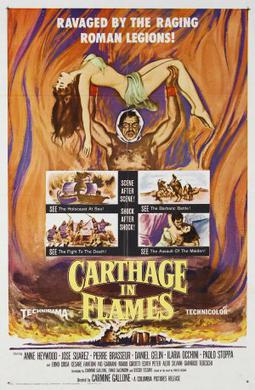

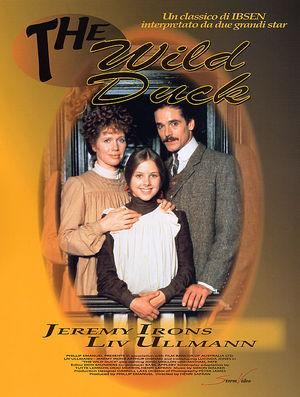
_poster.jpg)

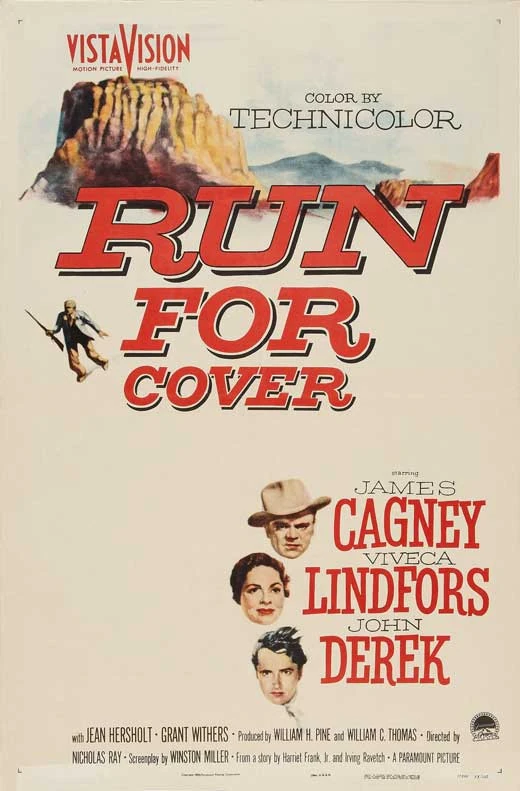


.JPG)




.JPG)






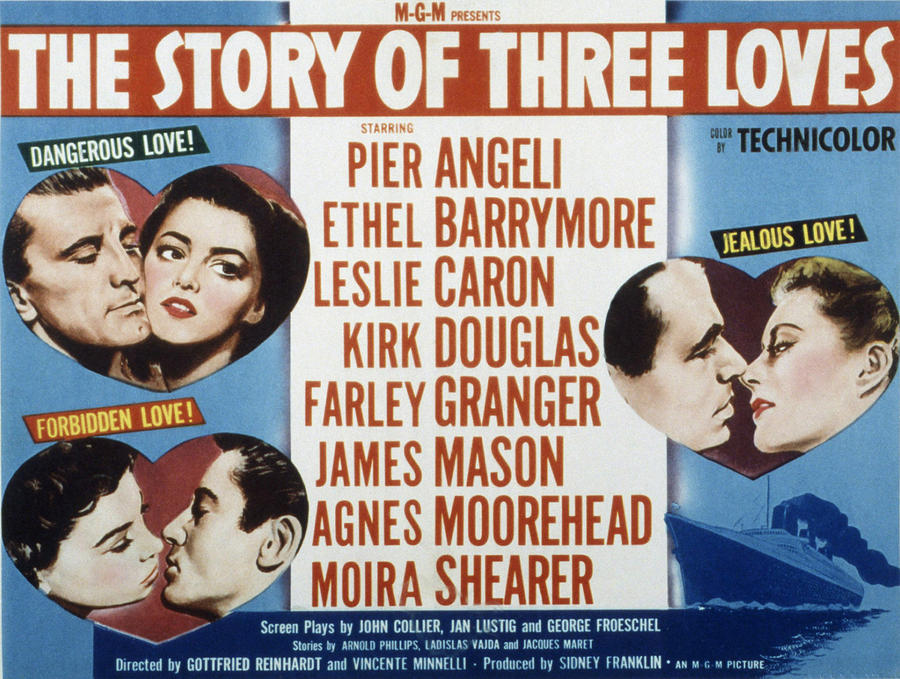


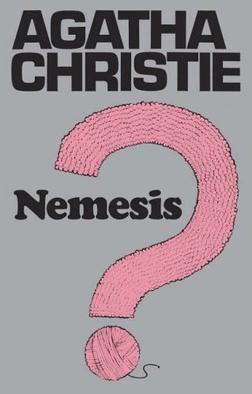
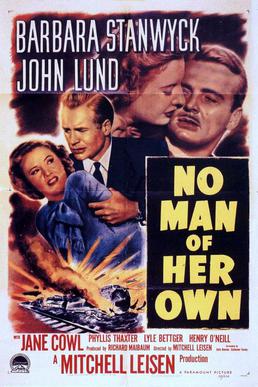
.JPG)
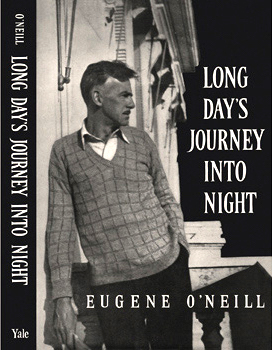

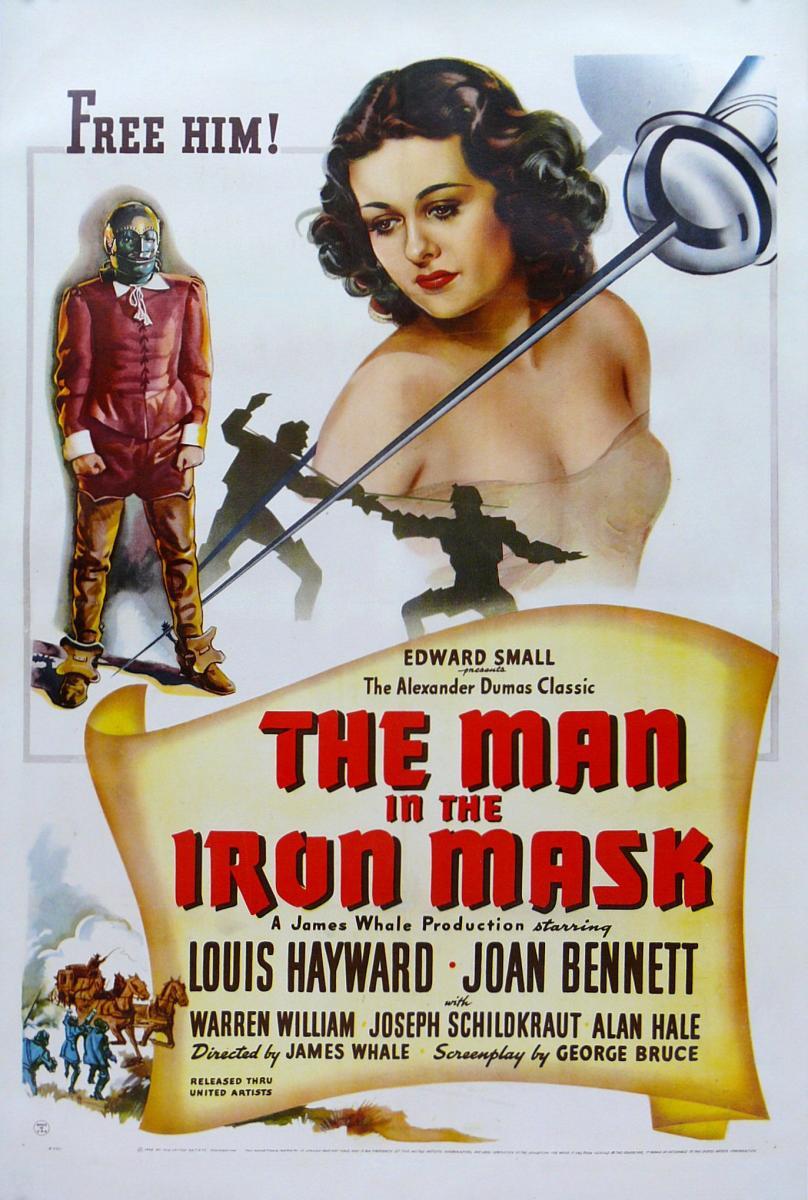






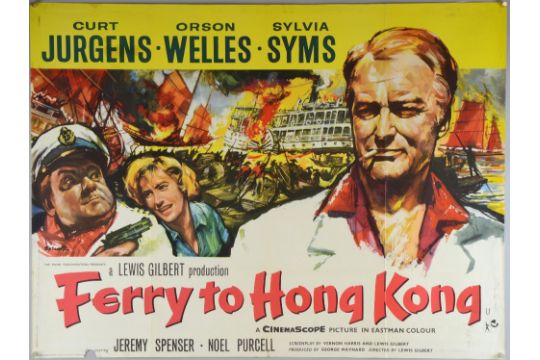

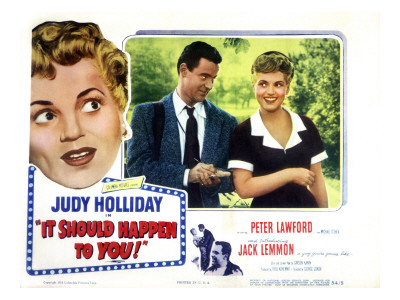




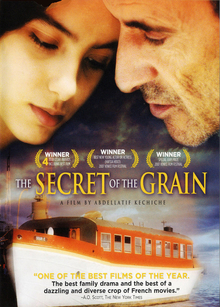

.JPG)
.JPG)
